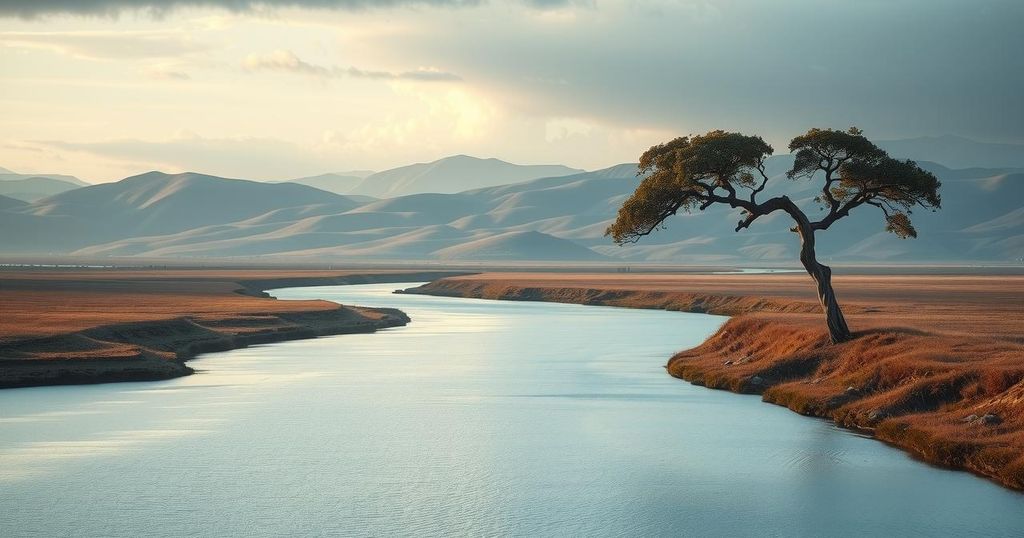Maduro’s Third Term: Challenges and Regional Tensions in Venezuela

Nicolás Maduro was sworn in for a third term amid protests and accusations of electoral fraud. Despite a peaceful inauguration, Maduro faces significant opposition and international isolation. His government’s actions, including claims over Guyanese territory, indicate diversionary tactics in light of his contested re-election and increasing political unrest.
On January 10, 2025, Nicolás Maduro was inaugurated as the President of Venezuela for a third six-year term. Despite elaborate decorations and military presence at the Legislative Palace, the streets were filled with thousands of protesters opposing his administration. His supporters, known as Chavistas, attempted to showcase strength by rallying for the Bolivarian Revolution, amidst growing discontent due to repression and political unrest following the controversial elections.
Maduro’s presidency has faced significant challenges, particularly following the elections conducted on July 28, 2024. His primary opponent, Edmundo Gonzalez, reportedly won by more than two-thirds based on collected electronic vote tallies. Nonetheless, Maduro declared himself the victor, leading to allegations of electoral fraud and prompting widespread protests. These events have resulted in an increasing diplomatic isolation for Maduro, with few regional allies remaining.
The political landscape in Venezuela remains turbulent, as Maduro contends with both internal dissent and external pressures. His recent actions, including claiming disputed territory and inciting nationalistic sentiments, signal his attempts to consolidate power amidst scrutiny and potential sanctions. The future of Venezuelan governance may hinge on international reactions and the resilience of its civil movements against oppressive governance.
Original Source: indepthnews.net







